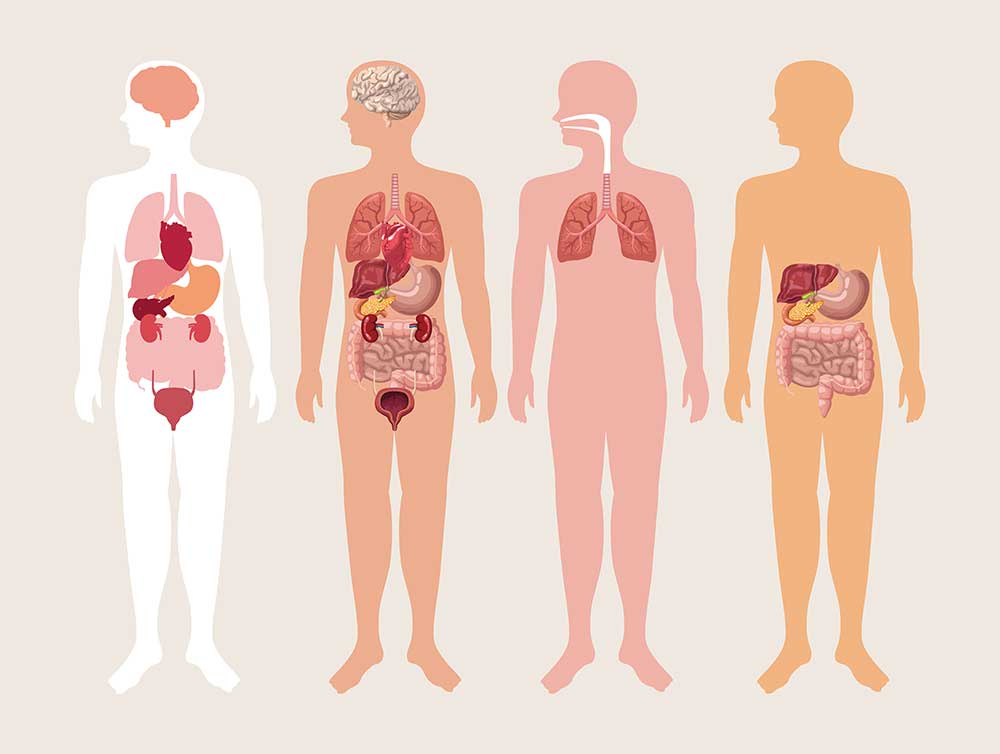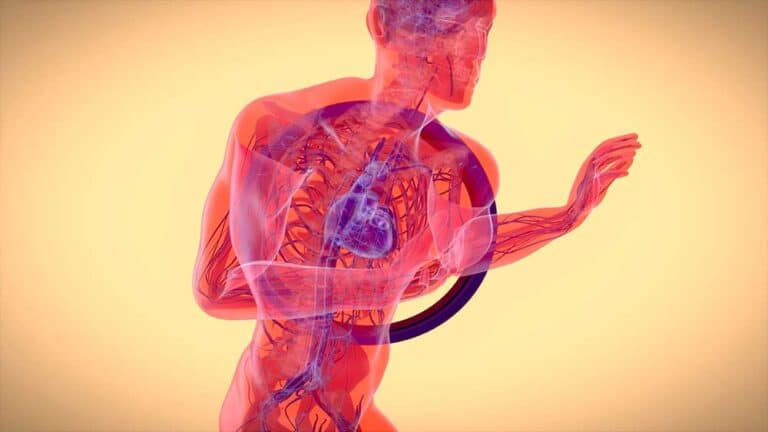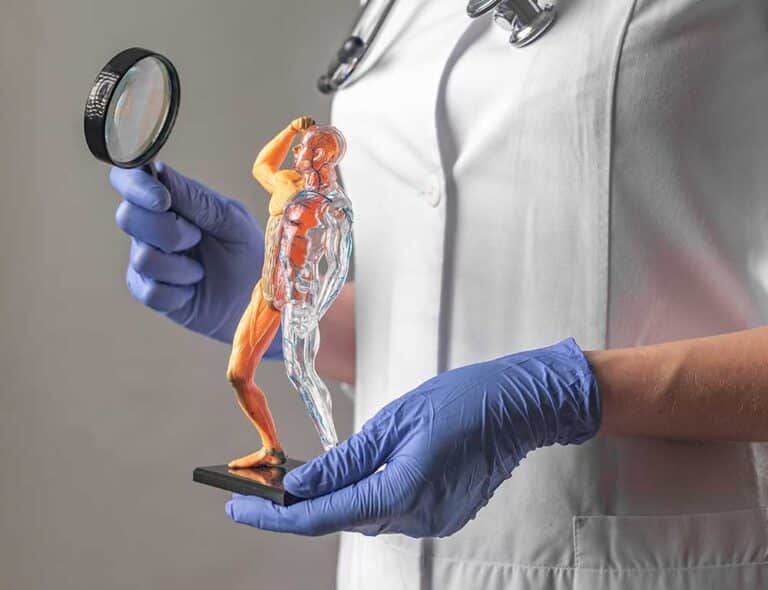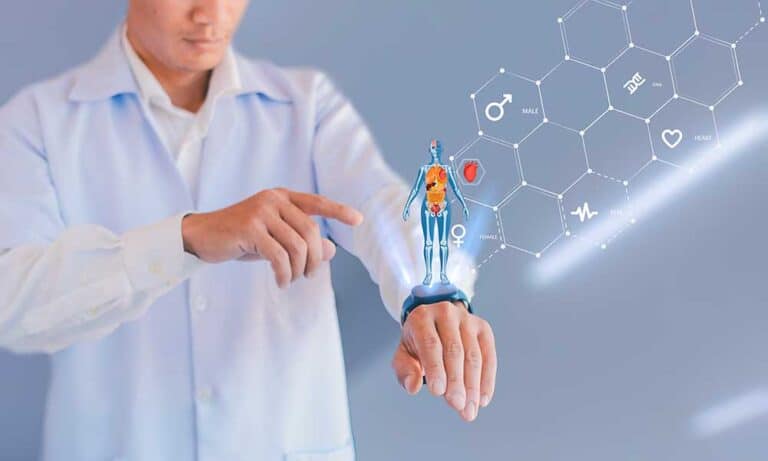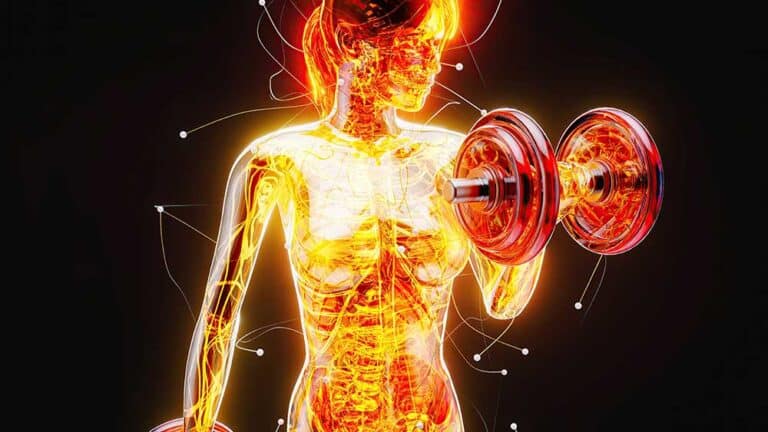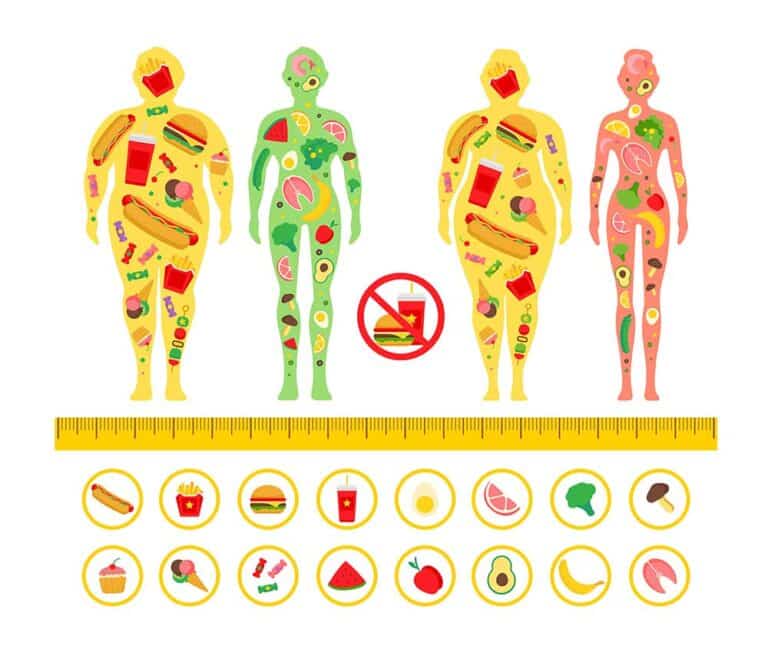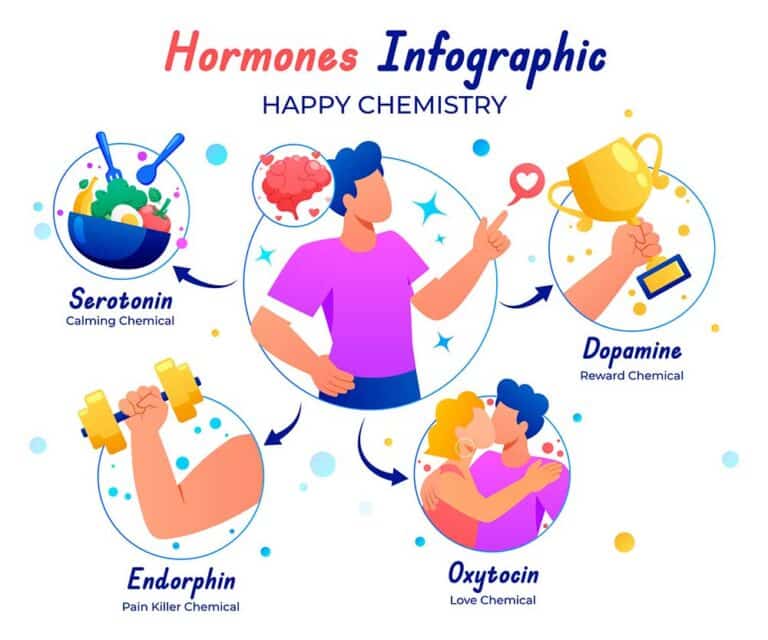Understanding Endocrinology
Role of Endocrinologists
Endocrinologists are healthcare professionals specializing in the endocrine system and conditions related to hormones (Cleveland Clinic). They play a crucial role in diagnosing endocrine system diseases and disorders, formulating treatment plans, and prescribing medication. For children under 18, pediatric endocrinologists address similar conditions, ensuring age-appropriate diagnosis and treatments (Cleveland Clinic).
Endocrine System Overview
The endocrine system consists of various glands that produce hormones, essential for regulating multiple functions within the human body (Mercy). These hormones influence processes such as metabolism, mood, sleep, digestion, and skin health. The following table outlines the major endocrine glands and their primary functions:
| Endocrine Gland | Primary Function |
|---|---|
| Thyroid Gland | Regulates metabolism and energy |
| Pituitary Gland | Produces hormones that control other endocrine glands |
| Adrenal Gland | Produces hormones that help manage stress and metabolism |
| Pancreas | Produces insulin and glucagon to regulate blood sugar levels |
Source: NIH
Each gland’s proper function is vital for overall health. For instance, the pituitary gland, often called the “master gland,” produces hormones like growth hormone, oxytocin, and endorphins, which play key roles in growth, childbirth, and reducing pain perception (Kids Health).
Hormonal imbalances in these glands can result in various endocrine system diseases and disorders. These include diabetes, thyroid disorders, and adrenal insufficiency, among others. More information on these conditions can be found in the section on endocrine disorders and treatments.
For further details on the anatomy and functions of individual glands, explore our section on endocrine system anatomy and physiology and learn more about hormones in metabolism. Understanding the reciprocal relationships and functions within the endocrine system is critical for recognizing and addressing endocrine diseases and disorders.
Common Endocrine Disorders
The endocrine system, responsible for hormone production and regulation, can be affected by various diseases and disorders. Some of the most common endocrine system diseases and disorders include diabetes, thyroid disorders, and adrenal insufficiency.
Diabetes
Diabetes is the most prevalent endocrine disorder diagnosed in the United States. This disorder involves issues with insulin production and utilization by the pancreas, leading to high blood sugar levels. There are two primary types of diabetes:
- Type 1 Diabetes: The body does not produce insulin.
- Type 2 Diabetes: The body either resists the effects of insulin or doesn’t produce enough insulin.
| Type of Diabetes | Description |
|---|---|
| Type 1 | Insulin production absent |
| Type 2 | Insulin resistance or insufficient production |
For more details on the pancreas and its role in insulin secretion, refer to our article on endocrine glands and their functions.
Thyroid Disorders
Thyroid disorders affect the thyroid gland, which is responsible for regulating metabolism through hormone production.
- Hypothyroidism: This occurs when the thyroid does not produce enough hormones, leading to symptoms such as fatigue, weight gain, and depression.
- Hyperthyroidism: This condition results from the overproduction of thyroid hormones, causing symptoms like weight loss, increased heart rate, and anxiety.
| Thyroid Disorder | Hormonal Imbalance | Common Symptoms |
|---|---|---|
| Hypothyroidism | Low thyroid hormone production | Fatigue, weight gain, depression |
| Hyperthyroidism | Excess thyroid hormone production | Weight loss, increased heart rate, anxiety |
Explore more about the thyroid gland in our article on endocrine glands functions.
Adrenal Insufficiency
Adrenal insufficiency, also known as Addison’s disease, is characterized by the adrenal glands releasing insufficient amounts of cortisol and sometimes aldosterone. Symptoms of adrenal insufficiency can include chronic fatigue, muscle weakness, weight loss, and low blood pressure.
| Condition | Deficient Hormone(s) | Common Symptoms |
|---|---|---|
| Adrenal Insufficiency | Cortisol, sometimes aldosterone | Chronic fatigue, muscle weakness, weight loss, low blood pressure |
Understanding and managing these common endocrine disorders is crucial for maintaining overall health. For more information on the endocrine system anatomy and physiology, visit our dedicated sections on these topics.
Causes and Symptoms
Understanding the causes and symptoms of endocrine system diseases and disorders is essential for identifying and managing these conditions effectively. This section delves into three critical aspects: hormonal imbalances, nodules and tumors, and common symptoms associated with endocrine disorders.
Hormonal Imbalances
Hormonal imbalances form a significant part of endocrine system diseases and disorders. They occur when there is too much or too little of one or more hormones. Hormones are chemicals produced by glands in the endocrine system. They travel through the bloodstream to various tissues and organs, delivering messages that regulate most major bodily processes.
Factors contributing to hormonal imbalances:
- Age-related changes
- Life stages such as puberty
- Conditions like polycystic ovary syndrome (PCOS) or thyroid issues (UCLA Health)
Hormones like insulin, steroids, growth hormones, adrenaline, estrogen, progesterone, and testosterone can all be affected by these imbalances, impacting functions such as metabolism, mood, sleep, digestion, and skin health (Medical News Today).
Nodules and Tumors
Nodules and tumors can also cause endocrine system diseases and disorders. These growths can develop in various endocrine glands, affecting their function and causing either an overproduction or underproduction of hormones.
Common locations for nodules and tumors:
- Thyroid
- Adrenal glands
- Pituitary gland
These growths can be benign or malignant and may require different diagnostic and treatment approaches.
Common Symptoms
The symptoms of endocrine disorders can vary widely depending on which glands and hormones are affected. Here are some common symptoms associated with hormonal imbalances and other endocrine system diseases:
| Symptom Category | Common Symptoms |
|---|---|
| Metabolic | Weight gain or loss, muscle weakness, fatigue |
| Mood and Cognitive | Anxiety, depression, mood swings, memory issues |
| Sleep | Insomnia, excessive sleepiness |
| Digestive | Changes in bowel habits, bloating |
| Skin | Acne, hyperpigmentation, dry skin |
| Reproductive (AFAB) | Menstrual changes, hair loss or growth, vaginal atrophy (UCLA Health) |
Hormonal imbalances can significantly impact the body’s equilibrium. Understanding these common symptoms can aid in early detection and timely management of endocrine system diseases and disorders. For more on how the endocrine system helps maintain balance in the body, see our article on endocrine system and homeostasis.
For further reading on the anatomy and functions of the endocrine system glands, visit endocrine system anatomy and physiology and endocrine glands functions.
Diagnosis and Treatment
Diagnosing and treating endocrine system diseases and disorders is a complex and multifaceted process. Given the interconnected structure of the endocrine system, which regulates key bodily functions like growth, metabolism, and reproduction, specific testing and tailored treatments are crucial for effective management.
Diagnostic Tests
Diagnosis of endocrine disorders typically involves a combination of various tests to assess hormone levels and locate potential issues such as nodules or tumors. Endocrinologists may use the following tests:
Blood Tests
Blood tests are used to measure hormone levels and identify imbalances. Specific hormones such as thyroid-stimulating hormone (TSH), insulin, or cortisol might be targeted depending on the suspected disorder (WebMD).
Urine Tests
Urine tests can also help in assessing hormone levels and detecting metabolic anomalies.
Imaging Studies
Imaging tests like ultrasounds, MRIs, or CT scans are essential for locating and evaluating nodules or tumors in the endocrine glands (WebMD).
Genetic Tests
Genetic testing might be recommended in certain cases to identify hereditary endocrine disorders and understand potential risks.
| Test Type | Purpose |
|---|---|
| Blood Tests | Measure hormone levels |
| Urine Tests | Detect metabolic anomalies |
| Imaging Studies | Locate and evaluate nodules or tumors |
| Genetic Tests | Identify hereditary disorders |
Treatment Approaches
Treatment approaches for endocrine disorders aim to restore hormonal balance and address the symptoms caused by these imbalances. The following are common treatment methodologies:
Medications
Hormone replacement therapies, antithyroid medications, or insulin injections might be prescribed based on the specific disorder. Regular monitoring of hormone levels is essential to adjust the dosage as needed.
Surgery
Surgical intervention may be necessary for removing tumors, nodules, or parts of an overactive gland. This is often considered when other treatments are ineffective.
Lifestyle Changes
Dietary modifications, regular exercise, and stress management can play a supportive role in managing endocrine disorders. Certain conditions, such as diabetes, require careful monitoring of food intake and physical activity levels.
| Treatment Type | Specific Approaches |
|---|---|
| Medications | Hormone replacement, antithyroid drugs, insulin |
| Surgery | Tumor/nodule removal, gland excision |
| Lifestyle Changes | Diet, exercise, stress management |
For a comprehensive understanding of endocrine disorders and treatments, it is essential to recognize symptoms early and consult with a healthcare professional. Regular follow-ups and adapting the treatment plan based on ongoing assessments are crucial for optimal management of endocrine system conditions.
Impact of Hormones
Hormones play a crucial role in regulating and controlling various systems within the body. When balanced, hormones ensure the proper functioning of many essential processes, but imbalances can lead to significant health issues.
Hormonal Imbalance Effects
Hormonal imbalances occur when there is too much or too little of a hormone in the bloodstream. Because of their pivotal role, even small imbalances can produce widespread health problems. Hormones regulate functions such as metabolism, mood, sleep, digestion, and skin health.
| Hormone | Function | Symptoms of Imbalance |
|---|---|---|
| Insulin | Regulates blood sugar levels | Fatigue, weight gain, diabetes |
| Estrogen | Female reproductive health | Weight gain, reproductive issues |
| Cortisol | Stress response | Anxiety, weight gain, high blood pressure |
| Thyroid Hormones | Metabolic rate | Weight changes, fatigue, sleep disturbances |
| Testosterone | Male reproductive health | Fatigue, muscle loss, mood swings |
Hormonal imbalances can affect males and females alike. For instance, imbalances in insulin, steroids, growth hormones, adrenaline, estrogen, progesterone, and testosterone can all contribute to various disorders if produced in excess or deficiency (Medical News Today).
Common symptoms of hormonal imbalance include:
- Unexplained weight gain or loss
- Fatigue
- Muscle weakness
- Mood swings
- Sleep disturbances
For individuals suffering from conditions like hyperthyroidism, treatments such as radioactive iodine are recommended to destroy a portion of the thyroid gland and reduce hormone production.
Hormones and Metabolism
Hormones have a substantial impact on metabolism, influencing how the body converts food into energy. The thyroid gland, for instance, produces hormones that control the rate at which cells burn fuels from food to make energy. These thyroid hormones are vital not just for metabolic processes but also for the growth and development of bones and the brain, especially in younger individuals.
The role of hormones in metabolism can be further understood by examining the effects of specific hormones:
- Thyroid Hormones: Essential for regulating metabolism, these hormones influence the rate of chemical reactions throughout the body.
- Insulin: This hormone is crucial for regulating blood sugar levels, allowing cells to take in glucose and use it for energy.
- Cortisol: Known as the stress hormone, cortisol helps regulate energy by managing how the body converts carbohydrates, fats, and proteins into energy.
- Growth Hormone: This hormone stimulates growth, cell reproduction, and cell regeneration.
For a detailed overview of the role of hormones in metabolism, visit our article on role of hormones in metabolism.
Internal Links
- Endocrine system and homeostasis
- Endocrine system anatomy and physiology
- Endocrine glands and their functions
- Endocrinology and metabolism functions
- Endocrine disorders and treatments
Understanding the impact of hormones on bodily functions is essential when exploring endocrine system diseases and disorders. This knowledge helps guide treatment approaches and lifestyle changes to manage and mitigate the effects of hormonal imbalances.
Endocrine System Glands
The endocrine system is a network of glands that produce and release hormones. These hormones regulate many important functions in the body, including growth, metabolism, and mood. Three major glands that play crucial roles in the endocrine system are the thyroid gland, pancreas, and pituitary gland.
Thyroid Gland
The thyroid gland is located at the base of the neck and produces hormones that regulate metabolism. The two main hormones produced by the thyroid are thyroxine (T4) and triiodothyronine (T3). These hormones affect every cell in the body by controlling the speed at which cells work.
-
Functions:
- Regulates metabolic rate
- Influences heart rate
- Controls body temperature
- Affects muscle function and mood
-
Common Disorders:
- Hypothyroidism: Low production of thyroid hormones
- Hyperthyroidism: Overproduction of thyroid hormones
- Thyroid nodules and cancer
For more details on thyroid-related disorders, visit our endocrine disorders and treatments.
Pancreas and Insulin
The pancreas is a gland located behind the stomach that plays a key role in digestion and glucose regulation. It produces insulin, a hormone that allows cells to take in glucose from the blood for energy.
-
Functions:
- Produces insulin and glucagon
- Regulates blood sugar levels
- Aids in digestion through enzyme production
-
Common Disorders:
- Diabetes Type 1: The body does not produce insulin
- Diabetes Type 2: The body does not use insulin properly
- Pancreatitis: Inflammation of the pancreas
Understanding the functions and disorders of the pancreas can help manage conditions like diabetes. Learn more at human body endocrine system.
Pituitary Gland
The pituitary gland is a small, pea-sized gland located at the base of the brain. Often referred to as the “master gland,” it controls other endocrine glands and regulates various bodily functions through hormone secretion.
-
Functions:
- Produces growth hormone
- Regulates thyroid and adrenal function
- Controls reproductive processes
- Manages water balance in the body
-
Common Disorders:
- Pituitary tumors
- Growth hormone deficiency
- Cushing’s disease: Overproduction of cortisol
Understanding the role of the pituitary gland is essential for comprehending the broader endocrine system anatomy and physiology.
| Endocrine Gland | Key Hormones | Functions | Common Disorders |
|---|---|---|---|
| Thyroid | T4, T3 | Regulates metabolism, heart rate, body temperature | Hypothyroidism, Hyperthyroidism, Thyroid cancer |
| Pancreas | Insulin, Glucagon | Regulates blood sugar, Digestive enzyme production | Type 1 & 2 Diabetes, Pancreatitis |
| Pituitary | Growth hormone, ADH | Controls other endocrine glands, Growth, Water balance | Pituitary tumors, Growth hormone deficiency, Cushing’s disease |
For a comprehensive understanding of the endocrine glands and their functions, and their importance in health and disease, refer to our detailed guides linked within.
- About the Author
- Latest Posts
Johnnie D. Jackow Sr., the founder and CEO of Total Body Fitness, Worldwide, has a long-standing career in the fitness industry. He began as a certified personal trainer in the mid-90s and soon after authored his first weight loss book in 1998. This led to the launch of Total Body Fitness, Nationwide in the USA at the same time. Johnnie gained recognition as the fitness guru of his time, running infomercials on local TV late at night in Houston, Texas. Over the years, he has helped more than 40,000 individuals from all over the world achieve their health and fitness goals. With over 60,000 hours of documented training in integrative functional medicine, he completed his PhD in human physiology in 2010. His primary objective is to assist people in reaching their health and fitness goals through alternative approaches rather than relying solely on conventional medicine and pharmaceutical drugs. Today, with almost three decades of experience under his belt, Johnnie continues to be a leader in health and fitness.

